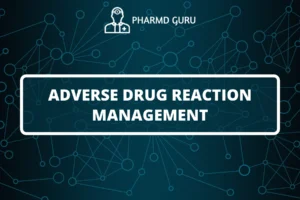Liver function tests are a group of clinical laboratory tests used to evaluate the health and function of the liver. These tests provide valuable information about liver enzymes, proteins, and other markers, helping healthcare professionals assess liver health, diagnose liver diseases, and monitor treatment effectiveness. In this article, we will explore the significance of liver function tests, common tests performed, and how to interpret their results accurately.
SCROLL DOWN TO THE BOTTOM OF THE PAGE FOR ACTUAL NOTES
TABLE OF CONTENTS:
- Introduction
- Importance of Liver Function Tests in Disease Evaluation
- Common Liver Function Tests
- Interpretation of Liver Function Test Results
1. Introduction
The liver plays a vital role in metabolism, detoxification, and protein synthesis. Liver function tests help assess liver health by measuring specific enzymes, proteins, and other substances in the blood. These tests aid in diagnosing liver diseases, evaluating liver function, and monitoring the effects of medications or treatments on the liver.
2. Importance of Liver Function Tests in Disease Evaluation
Liver function tests are essential for several reasons:
- Diagnosis of liver diseases: These tests help diagnose various liver conditions, including viral hepatitis, alcoholic liver disease, fatty liver disease, and liver cirrhosis.
- Monitoring liver function: Liver function tests assess the overall function of the liver by measuring enzymes and proteins produced by the liver cells.
- Evaluating treatment response: These tests are used to monitor the effectiveness of treatments for liver diseases and assess potential medication-induced liver toxicity.
- Detecting liver damage: Liver function tests can identify liver damage or inflammation by measuring liver enzymes released into the bloodstream when liver cells are injured.
3. Common Liver Function Tests
Several liver function tests are performed to evaluate liver health and function. Here are some commonly used tests:
- Alanine Transaminase (ALT): ALT is an enzyme primarily found in liver cells. Elevated levels of ALT in the blood may indicate liver damage or disease.
- Aspartate Transaminase (AST): AST is an enzyme present in various tissues, including the liver. Elevated AST levels can indicate liver damage, but it is less specific to the liver than ALT.
- Alkaline Phosphatase (ALP): ALP is an enzyme present in the liver and other tissues. Elevated ALP levels may indicate liver or bone disorders.
- Gamma-Glutamyl Transferase (GGT): GGT is an enzyme involved in liver function. Elevated GGT levels may suggest liver disease or alcohol abuse.
- Bilirubin: Bilirubin is a yellow pigment produced during the breakdown of red blood cells. Elevated levels of bilirubin can indicate liver dysfunction or other conditions affecting the bile flow.
- Albumin: Albumin is a protein synthesized by the liver. Decreased albumin levels may indicate liver disease or malnutrition.
- Prothrombin Time (PT): PT measures the blood’s ability to clot and is influenced by liver function. Prolonged PT may suggest impaired liver function.
4. Interpretation of Liver Function Test Results
Interpreting liver function test results involves considering several markers and their values in the clinical context. Here are some key points to consider:
- ALT and AST: Elevated levels of ALT and AST may indicate liver damage or inflammation. The ratio of ALT to AST can provide additional insights into the underlying cause.
- ALP and GGT: Elevated levels of ALP and GGT can indicate liver or bile duct abnormalities, such as obstruction or liver disease.
- Bilirubin: Elevated bilirubin levels may suggest liver dysfunction, such as hepatitis or obstructive jaundice.
- Albumin: Decreased albumin levels can indicate chronic liver disease or malnutrition.
- Prothrombin Time: Prolonged PT suggests impaired liver function and can reflect the liver’s ability to produce clotting factors.
It is important to note that abnormal liver function test results do not provide a definitive diagnosis but indicate the need for further investigation and evaluation by a healthcare professional.
ACTUAL NOTES




